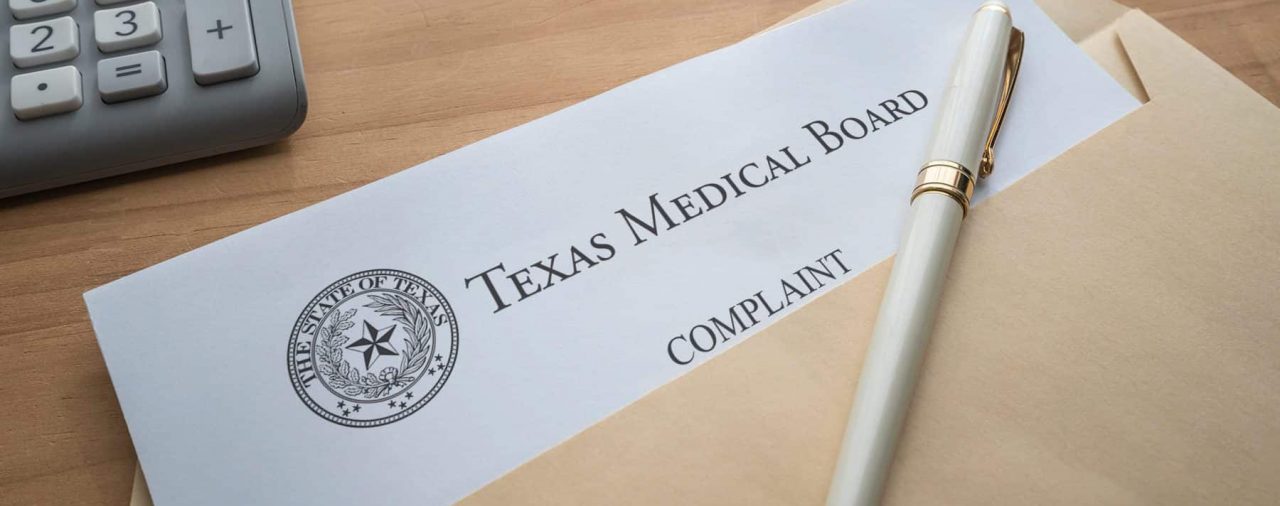Content Highlights
When the Texas Medical Board sends a complaint letter, your license, and your reputation, may be at risk. Responding properly and on time is essential.
At Gardner Employment Law, we help physicians navigate the Texas Medical Board complaint process. Read on to learn about this process.
What Is a TMB Complaint Letter?
A TMB (Texas Medical Board) complaint letter is the Board’s formal notice that it has received a complaint against you. This initiates a preliminary investigation and is the first step in the medical license complaint process. The notice typically includes a description of the alleged misconduct and requests a narrative response from the physician within 28 days of the date of the letter.
The TMB seeks to answer the question as to whether your alleged actions violated the Texas Medical Practice Act.
What Happens After You Receive the TMB’s Complaint Letter?
After receiving the TMB’s notice of the complaint, you must submit a narrative response no later than 28 days from the date of the TMB notice. The moment you receive the complaint letter, a 28-day deadline clock starts.
The TMB will review your written explanation and determine either (1) to dismiss the complaint for no jurisdiction or (2) move the matter into formal investigation and towards the ISC (“Informal Settlement Conference”).
If the TMB takes the first route, dismissal, that means that after reading the papers, it is clear that there was no legal violation. However, if the TMB believes that you may have violated the Medical Practice Act, the TMB agent proceeds to the investigation phase.
How to Prepare an Effective Response
Your response must be well-structured and thoroughly prepared. Hopefully, the medical records back up what you state in your response. You cannot come across as casual or defensive.
Here are a few guidelines:
- Address each allegation directly: Don’t ignore or dismiss any points raised in the complaint.
- Keep the tone factual and professional: Avoid defensiveness or emotional language.
- Avoid speculation: Only speak to facts you can verify.
- Attach relevant supporting documents: Provide chart notes, peer review outcomes, or any documents that support your version of events.
- Don’t over-explain: Stick to what’s necessary to provide a complete and clear picture.
Your goal is to persuade the TMB examiner that you did not violate any portion of the Texas Medical Practice Act. If you can accomplish that goal in your initial response, there is a good chance that the complaint against you will be dismissed outright.
Common Mistakes That Hurt Your Case
Many physicians make the mistake of rushing through drafting the response or treating it as a formality. Here are some pitfalls to avoid:
- Submitting the response late
- Writing a defensive or emotional narrative
- Providing insufficient documentation
- Inadvertently admitting fault
- Ignoring legal advice
We once assisted a physician who received a complaint for allegedly breaching professional boundaries. We were able to help her rectify the problem but not until her career was badly tarnished.
Unfortunately, this type complaint is all too common and difficult to defend. For more description about defending that type claim, read our article “TMB Complaint – When It’s Your Word Against the Patient’s.”
Why Legal Representation Is Critical When Responding to a TMB Complaint Letter?

The right legal team can help you:
- Draft a response that aligns with TMB expectations
- Ensure that all required documents are included
- Avoid red flags that may trigger a formal proceeding
Hiring legal counsel early increases your chances of resolving the issue before facing the Informal Settlement Conference. Consider the attorney’s fee as an investment in your career.
Frequently Asked Questions
What triggers a TMB complaint letter?
Any individual, patient, coworker, or third party, can file a complaint if they believe a physician violated the Texas Medical Practice Act.
What’s included in the initial notice?
The initial notice from the TMB, the “Complaint Letter,” outlines the nature of the complaint and provides instructions for submitting your response.
How long do I have to respond?
You must respond to the TMB’s Complaint Letter within 28 days from the date the letter was issued.
What happens after I submit a response?
The TMB may dismiss the complaint or advance the matter for further investigation and then to an ISC for discussion and, hopefully, conclusion.
Do I need a lawyer to respond?
While not legally required, having a lawyer can significantly increase your chance of a favorable outcome to a complaint filed against you with the TMB.
What is an ISC and how should I prepare?
An ISC is the Informal Settlement Conference. This is a private meeting with TMB representatives where you answer questions and discuss your case. You should prepare documentation, anticipate questions, and have legal counsel present.
Conclusion: Protect Your Medical License
Your medical license is your livelihood, and your license is at risk when you receive a TMB Complaint Letter. Responding to this letter with clarity, professionalism, and legal precision can be the difference between dismissal and discipline.
At Gardner Employment Law, we have helped numerous physicians respond effectively to complaints filed with the TMB . Learn more about our Texas Medical Board defense services.

